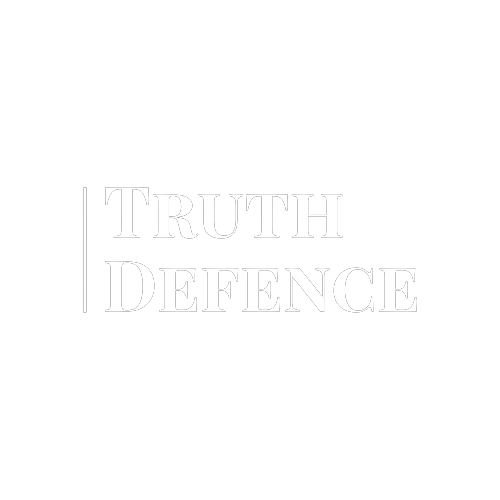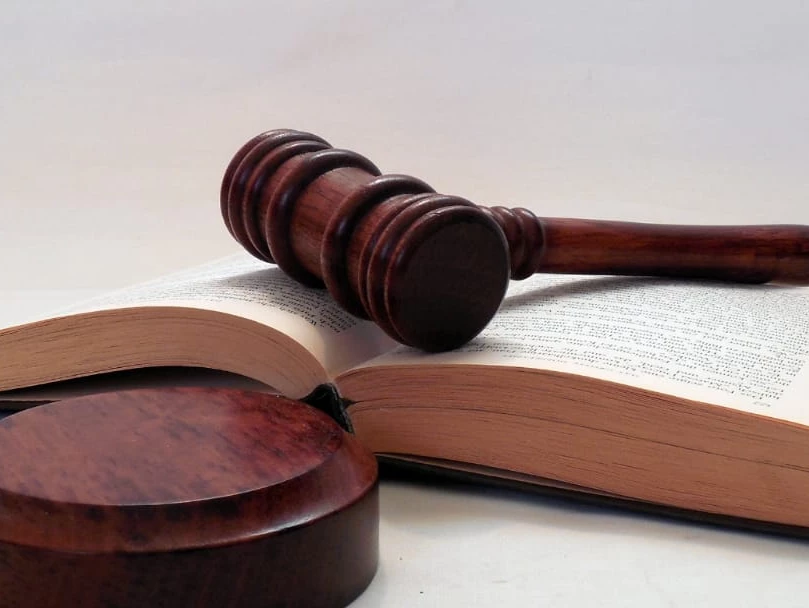Lawfare – the use of litigation for political or ideological ends – appears to be on the rise. In this special report based on a month-long investigation, we reflect on some of the cases and characteristics that have given rise to allegations of lawfare, and its implications for free speech and public debate in the social media age.
Though there exists no objective definition of lawfare, we identify a number of features which point to the potential chilling effect of recent libel actions, including threats made in public by would-be claimants and the selective targeting of individual defendants. We also highlight how current cost regime for defamation law can weight in favour of relatively well-resourced claimants and pose a serious risk to the maintenance of free and democratic debate online.
Historical Roots
A recent European survey by Index on Censorship noted that legal threats and actions brought by powerful individuals aimed at intimidating and silencing journalists reflected a “worrying trend that we are seeing across the continent”.
But such actions, known as SLAPPs (strategic lawsuits against public participation), are not new. The term was originally coined in the US by law professor George W. Pring who, after a five-year study, concluded that:
The apparent goal of SLAPPs is to stop citizens from exercising their political rights or to punish them for having done so. SLAPPS send a clear message: that there is a “price” for speaking out politically. This price is a multi-million dollar lawsuit and the expenses, lost resources and emotional stress that such litigation brings.
Not long after Pring’s study, a New York supreme court judge commented that “short of a gun to the head, a greater threat to [free] expression can scarcely be imagined”.
Several US states have since enacted so-called anti-SLAPP legislation. Among the most robust versions is California’s Code of Civil Procedure. This enables a judge to strike out a claim if the plaintiff cannot substantiate merits and it relates to certain types of protected speech, including speech in a public forum about an issue of public interest.
In Europe, legislators are currently pondering similar legislation but there are concerns that it will only offer protection to professional journalists and publishers. And with the UK out of the European Union, there is little to suggest that any such legislation will be on the cards here, any time soon.
An Ominous Precedent?
Yet it is here that a new front appears to have opened for libel claimants to target individuals who engage in political and politicised speech on social media. A potentially ominous precedent was set in 2017 when the right-wing columnist Katie Hopkins was successfully sued for defamatory comments on Twitter by food writer and activist Jack Monroe. As David Price QC – an expert in defamation law as it relates to social media – explained to us:
Jack Monroe’s victory against Katie Hopkins, in my view, set the “serious harm” hurdle extremely low. Those on the left that celebrated Ms Hopkins defeat and subsequent financial difficulties perhaps failed to appreciate that the decision could be used against other twitter users of more sympathetic views. The combination of the absence of a meaningful harm requirement and the huge recoverable costs that are allowed under English procedure has always given rise to claims being brought for collateral purposes, ideological or otherwise.
Another defamation expert we spoke to, however, argued that the words complained of in Monroe v Hopkins were quite clearly defamatory and demonstrably false. But even if not a harmful precedent, the case was illustrative of how the pool of potential targets for libel action has expanded dramatically in the social media domain. As Patron Law (the London law firm behind a spate of recent ‘Twibel’ actions) states on its website:
Everybody is now a publisher. Unhampered by the shackles of an editor or advice on what may or may not constitute a defamatory or libelous [sic] remark, ordinary people are exposing themselves to greater risk of litigation than ever before.
The Costs Advantage
But there are particular characteristics of recent defamation actions which have prompted concerns over an emergent SLAPP trend in the UK. One of them relates to costs and the fact that, in many cases, claimants can have a structural advantage when it comes to costs, and especially where defendants are of limited means.
Such defendants may be inclined to settle even if they have a strong defence. A 90% chance of success in the courts may not be considered enough for them to risk their house and/or livelihood on fighting a case. And that is very often the level of stakes involved.
As one defendant put it to us:
[The claimant’s solicitor] works on a no-win-no-fee basis and also offers clients After The Event insurance, which covers any costs awards if they lose. So it literally costs them next to nothing to start – or even merely threaten against people, knowing full well that even if the defendant wins, at best they will only recover 60-80% of their costs, with the insurers paying. Using the legal process for political ends must stop.
Of course, there is nothing necessarily wrong with solicitors offering clients Conditional Fee Agreements (previously known as no-win-no-fee). Indeed, in many cases such agreements offer access to justice that might not otherwise be available to parties in a defamation case, especially in light of cuts to legal aid.
But a potential problem arises if CFAs are offered on the expectation that a defendant is likely to settle in the claimant’s favour, rather than on the merits of the case per se. Assessment of merits is not an exact science and there may well be conflicting expert views as to the strength of any given case. But circumstances may mean a case is assessed as likely to ‘succeed’ in the claimant’s favour, even if there is negligible reputational harm and/or strong admissible defences.
This issue is compounded by the fact that the offer of a conditional fee deal by a solicitor and/or counsel opens the door to the offer of ATE insurance, whilst such offers are rarely available to defendants (given their perceived relative risk profile).
What’s more, once proceedings have commenced, solicitors are obliged to advise defendants that such arrangements are in place in order to ensure the cost of insurance premiums is potentially recoverable, and typically they will often inform defendants during the pre-action process. The mere fact that claimants have such cushions against financial risk is likely to intensify pressure on defendants to settle early, even if they have strong defences. In cases with an obvious political dimension, this poses a potentially profound risk of a chilling effect on freedom of expression.
Selective Targeting
One particularly problematic feature of ‘Twibel’ actions is the targeting of individuals rather than publishers. In a joint statement on the libel action brought by billionaire Aaron Banks against the journalist Carole Cadwalladr, press freedom groups highlighted the particular chilling effects of this kind of targeting:
We note with concern the abusive approach Banks has taken in targeting Cadwalladr as an individual on the basis of comments she made orally – including a single sentence in a TED talk – and on Twitter, rather than similar reporting that had been published in the Guardian.
In some cases, individuals can be targeted where they are not the original authors or publishers of the actual statement complained of. An instructive example is that of barrister Jane Heybroek, who found herself the subject of a libel claim by celebrities Rachel Riley and Tracy-Ann Oberman in 2019. Heybroek had re-tweeted an article by the blogger Shaun Lawson which was highly critical of the online behaviour of both Riley and Oberman. Heybroek had deleted her re-tweet before any Letter of Claim had been received and was one of several hundred people who had re-tweeted the same article.
According to David Price QC:
The Twitter users who are most vulnerable are those who have some assets, for example, equity in their home but are not super rich or indemnified. A claimant’s lawyers will generally investigate the potential defendant’s assets before choosing to sue. Given the way that allegations circulate on Twitter, there is usually a relatively wide choice of defendants.
For any defendant of average means threatened with such action, the pressure to settle can be immense.
In response, Mark Lewis (the solicitor acting for the claimants in Riley and Oberman v Heybroek) stated that the original author’s whereabouts were not known and that “it is doubtful that he has sufficient funds to meet a judgment”, adding that “our responsibility to our clients and the ATE insurer mean that claims are not pursued where there is no prospect of a commercial recovery”. In this context he also emphasised that;
Out of hundreds of cases, I have lost only a handful in a career of over 30 years. Obviously no solicitor can succeed in every case but I have a rather good success rate. My clients have obtained the highest libel and privacy pay outs in the UK.
A Matter of Meaning
Once proceedings are initiated, the first stage of libel cases tends to be a ‘meaning’ hearing. These are preliminary hearings to establish the defamatory content of the publication complained of and the basis on which the defendant can enter defences. But often the mere fact that a judge determines a given statement to be ‘defamatory’ is wrongly interpreted by newspapers as a ‘victory’ for claimants. Put simply: just because a statement is capable of damaging someone’s reputation, does not mean that the person making the statement had no right to do so. There are a range of defences intended to protect freedom of expression including honest opinion, truth and public interest. In the case of Riley and Oberman v Heybroek, the judge concluded at the preliminary hearing that some of the words complained about were defamatory and some were not. This was by any measure a nuanced ruling but it produced headlines in both the Evening Standard and Daily Mail asserting that the claimants had ‘won’ the first round of the case.
In that particular example, the claimants subsequently withdrew and agreed a settlement that included a significant contribution towards the defendant’s costs. Clearly, however, public declarations of ‘victory’ for claimants at the meanings stage can intensify pressure on defendants to settle in their favour, especially given the costs and emotional stress that progression to a full hearing often entails.
The Public Threat
Of course, the mere threat of such actions can have a potential chilling effect on free speech and political debate without even the pre-action process being initiated. In this respect, there have been a number of pre-emptive public threats of legal action by high profile individuals represented by Mark Lewis. In an opinion piece written for the Jewish Chronicle in July this year, John Ware critiqued a number of individuals under the headline “The Corbynites have lied with impunity – now they face the legal consequences”. Lewis also confirmed to the media that he had been “instructed to pursue” Jeremy Corbyn for his statement in response to the Panorama settlements prior to any letter of claim (a threat that appears to have come to nought). In his response to request for comment, Lewis simply asserted that “I do not make public threats of suing for libel at all”.
In the same month, Rachel Riley marshalled her 667K Twitter followers to trawl the Internet for “actionable libel” against her, noting that “my lawyer @MLewisLawyer and I would be most interested”. The tweet also included a meme depicting a popcorn-eating deer, conveying the impression that her followers hunting for potential litigation targets would be a form of entertainment.
Most concerning of all is the apparent political dimension to much of this legal action. The defendants in the recent spate of claims (and threatened claims) brought by clients of Mark Lewis are diverse in background and profession. They are united only by the fact that, to a greater or lesser extent, they are on the left of the political spectrum and have evinced support for the former Corbyn leadership of the Labour Party.
For his part, Mark Lewis has been a vociferous opponent of Corbyn’s leadership, and has publicly accused him of being an ‘antisemite’. However, in response to our questions during the preparation of this article he rejected any suggestion that either he or his clients target individuals on the basis of their political belief, or that a disproportionate number of people he has acted against are “left wing”.
In any case, this is an issue that transcends the left-right political divide. The spate of recent threats and libel actions brought by public figures against relatively unknown individuals cast doubt on whether the serious harm principle is having its intended effect. That in itself is a potential recipe for a chilling regime. At the very least, it opens the door to the possibility of the law being used for purposes akin to SLAPP actions. And it is precisely such a possibility that the law must guard against if it is to strike a proper balance between free speech and reputational rights in the online world, and ringfence legitimate democratic debate.
The casualisation of journalistic employment and the fact that ‘everyone is now a publisher’ has created a perfect storm that has left an increasing number of people vulnerable to potential acts of lawfare. Combined with cuts to legal aid and a cost regime that can structurally favour relatively well-resourced claimants, this is an issue that requires urgent attention from policymakers, legal professionals and journalists alike.
What is clearly needed is legislation to shore up the rights of individuals on social media who engage in public commentary on public interest issues, including criticism of public figures.
But anti-SLAPP legislation alone is not likely to be sufficient, and there are concerns that if such legislation exclusively protects journalists and publishers, it will restrict access to justice for those claimants with a legitimate grievance but without the necessary means to bring an action in the High Court.
The failure of the Royal Charter on Press Regulation to implement reforms proposed by the Leveson Inquiry (set up in the wake up of the phone hacking scandal in 2011) has meant that genuine victims of press abuse have little option for redress other than through the self-regulatory body that represents most of the national press (the Independent Press Standards Organisation).
One starting point could be the introduction of fixed costs as well as legal aid for defendants of limited means. That could at least begin to level the playing field and help to ensure that defendants are able to actually defend themselves without risking their homes or livelihoods.
Without such protections the very fabric of free speech is under threat, whether it be from the left, right or centre of the political spectrum.


